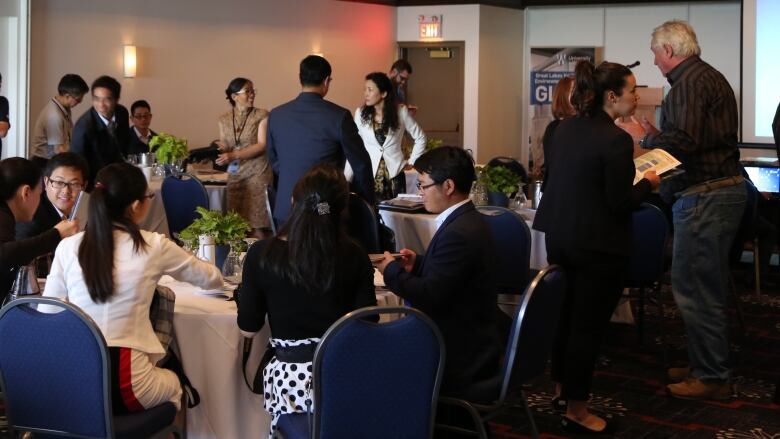Chinese and Canadian scientists share water conservation strategies at Windsor conference
University of Windsor hosting 2017 Canada-China Water Science Workshop

A group of 60 Canadian and Chinese scientists and students are meeting in Windsor this week to discuss common water issues faced by both nations, such as the effect of intensive agriculture on bodies of water.
Canada has much to learn during the talks, largely because China has advanced policies for water conservation and pollution reduction, according to University of Windsor professor DougHaffner, one of the organizers of the conference.

"[China's] water research, water management program is larger than Canada's whole GDP. They have resources to do experiments that we are not capable of doing here in Canada," he said."It's much to our benefit to work with China on these issues."
Canadians have room to improve when it comes to reducing the use of chemical fertilizers and consuming less water, explained Chang-Qun Duan,one of the scientists in Windsor for the conference.
"In Canada, especially Ontario, you have big lakes. But in China ... we have big rivers," said Duan, whois dean of the School of Ecology and Environmental Sciences atYunnanUniversity in southwest China.

China's lower per-capita use of water was something that also struck Haffer, who explained that the average Canadian uses roughly 10 times more water per day than the average person in China.
He would like to see Canada adopt a national water policy, just as China has.
"There's a lot to learn from them, because they are now facing [a water]crisis," he said. "We can learn from them and avoid a crisis."

Duan said that China can learn a lot from Canada, too.
"Canada has very advanced technology [when it comes to the] treatment of wastewater, " he said. "Local governments and ordinary people [in Canada] have a good sense of environmental concerns."
During the conference, the bulk of which is taking place at the Best Western Plus Waterfront Hotel in downtown Windsor, attendees will be presenting research, engaging in group discussions and setting joint research goals.
They will also takeintours of theLou Romano Water Reclamation Plant in Windsor, the LaSalle Freshwater Ecology Centre, the WoodsleeResearch Farm and PointPeleeNational Park.












_(720p).jpg)


 OFFICIAL HD MUSIC VIDEO.jpg)
.jpg)



























































































